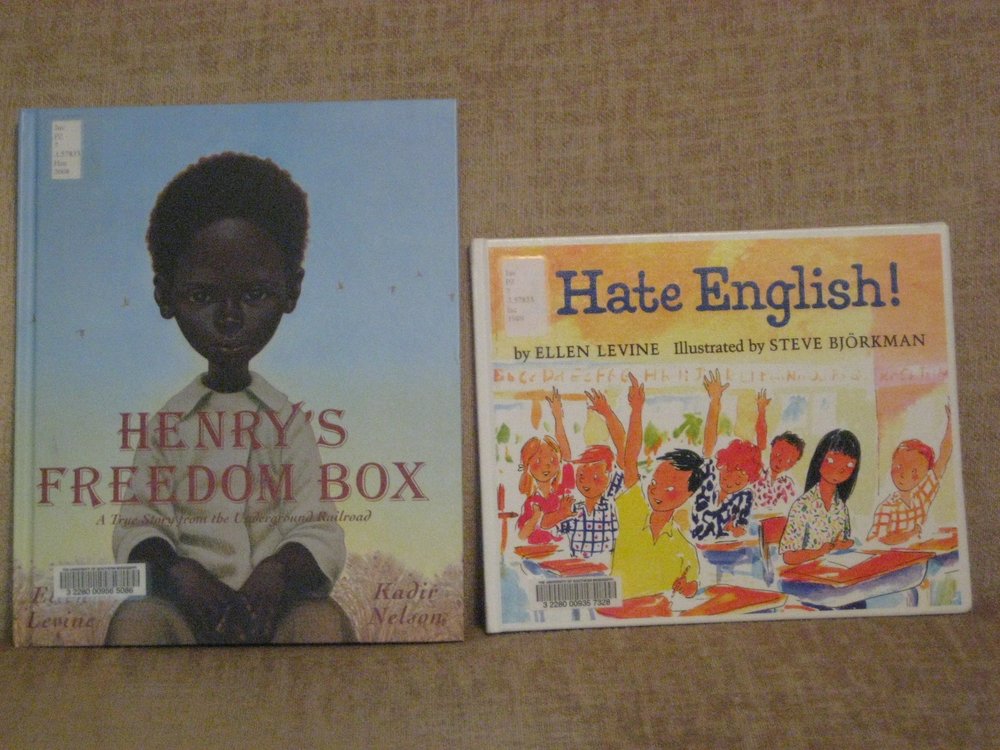
Mama Butler knew how to say, “I love you,” in a way that involved no words. Her sons and grandchildren heard and understood.
She grew up in a silent generation that seldom spoke about feelings. Instead, she demonstrated. Her sons tasted her love daily as they grew up and again when they returned as adults.
I married her youngest son and tried to improve her habits. When the family was coming for dinner, 
I tried to convince her that nobody could eat all that at one sitting. It was only necessary, I said, to fix one well-balanced meal with one kind of meat or main dish, a couple of vegetables, a salad, one bread, and a dessert. I suggested she’d enjoy her company more if she were not so tired. None of this was heeded.
Noticing that her grandson Lance scraped the meringue off his pie and left the crust, I suggested that she make some chocolate pudding and save herself some trouble. “Lance likes chocolate pie,” she said.
When I tried to improve her habits, she countered with the name of a son or grandchild who would surely starve if a particular favorite wasn’t on the table. I hadn’t seen the message in the food.
I appealed to her fatigue, which would prevent her entering the lively discussions that followed the meal. She said, “I just enjoy listening and seeing people enjoy what I have cooked.” Finally, I gave up out of frustration, seeing that it was useless. I remained convinced that I was right. I have no idea why I thought I would make any changes in her behavior when the other three daughters-in-law had been unable to.
Eventually, we moved and were the ones returning for the special occasions. I don’t remember when I realized that I, too, had succumbed to anticipating her meals. We’d arrive at the front door. Even before she answered our knock, I could see her coming out of the kitchen, wiping her hands on her apron, not a silver hair out of place in spite of the heat of the kitchen. The aroma preceded her. The mixture included my own favorites: purple-hull peas, creamed corn, fried chicken, and cornbread. I began to hear what she was saying in the kitchen.
With the dinner on the table, she gave warnings about which things weren’t quite right this time.
“The meringue didn’t rise quite high enough.”
“These store eggs are not as good as when I used to have my own chickens.”
“The corn is not as good as last year. I think the weather’s been too dry.”
“The icing on the cake didn’t harden right. I think I should have cooked it a little longer.”
We never found these flaws.
I began to see her pleasure in watching her family enjoy the after dinner talking and teasing, punctuated with return trips to the kitchen for another piece of fried chicken, another glass of boiled custard, or another sliver of cake. A final round brought enough nourishment for the trip home.
Mama Butler finally learned to say the words, “I love you,” – from her grandchildren, I think. But those who loved her still heard them best around her table.
Answering a Hard Question

In his recent address to 1234 attendees at the Society of Children’s Book Writers and Illustrators in Los Angeles, Bryan Collier talked about how important it was to see himself in The Snowy Day. As I listened, I remembered when book children lived in middle-class white families with a mother, father, one or two siblings, and a pet – or the problem was the lack of such a family and the resolution was finding one. Ezra Jack Keats broke a mold when Peter, his Snowy Day protagonist, was black – just a little boy doing what all children do in the snow.
After The Snowy Day, other authors have included children of other economic levels, races, and cultures in their books. Publishers today look for those stories. Besides all children's need to find people like themselves in a book, I believe it’s also important for them to find those who are different – and to discover how much they are alike after all. Peter’s skin color may have been different for many children who read the book, but he loved the very same things they did when the white stuff began to fall.
Other ways children are different have nothing to do with ethnicity. Military children come in all varieties, one of the things I treasured about teaching in schools on or near military bases. But they have a culture all their own. They fit, sort of, with extended families they visit maybe once or twice a year. They fit, sort of, with the new community they may live in for six months, three years, or five if they are lucky. As a rule, they learn to adapt quickly to new homes and friends and have wonderful opportunities to experience the world. They also have unique challenges. I’ll not go into all of this because it’s told better in Kimberly’s books.
This week marks the release of Piper Reed, Forever Friend, the sixth in a series that follows the ups and downs of a Navy Brat. Kimberly Willis Holt writes from experience, her early memories including kindergarten in France and a stint in Guam with her Navy father. These books are for military children Kimberly [on the right] and me at the Children's Book Festivalwho can see themselves and say, “Yeah, just like me,” and for those who wonder what it would be like to live this nomadic life. Carey Hagan in the September/October 2011 issue of The Horn Book Magazine points out that these are books about a girl that a boy would read.
So if you’ve ever wondered what it was like to be in a military family or if you know a military child who needs to find himself or herself in a book, meet Piper Reed.
A Teacher Who Made a Difference to Me

It didn’t take long for the name of Elizabeth Bounds to come to mind. She was an excellent English teacher, but the difference went far beyond class. She kept study hall in the teeny-tiny library of the teeny-tiny Abbeville High School. One day she handed me a book off the shelf. “Virginia Ann, this is a book you need to read.”
Now, she didn’t say this was a book a ninth-grader or a tenth-grader should read, but a book that I should read. I knew I had been singled out. I read that one and returned it to ask for another recommendation. She introduced me to A Tale of Two Cities, Pride and 
As this new school year begins, I am grateful for Elizabeth Bounds and teachers like her who see the individuals in their classrooms and challenge them to find and follow their passions.
Ranting About "Rights" vs. "Right"
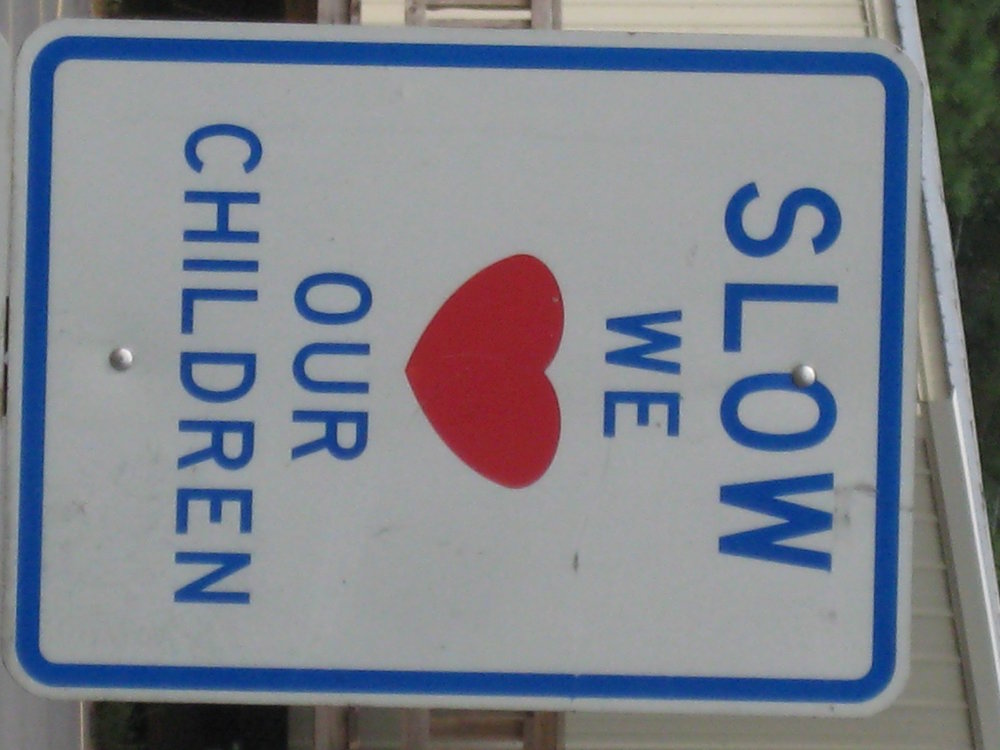
I can only guess these people did not have my favorite education professor who asked for complete silence one day so she could tell us something very important. She said, “Any good teacher will reach 85% of the students in her [his] classroom. The master teacher figures out how to reach that other 15%.” She knew, as all teachers should know, that some students are challenging. I’ve had my share and lost track long ago of how many times an administrator told me a challenging child was placed in my room “because you can handle him/her.” Not one of these students deserved a public rebuke. Much more effective was that quiet one-on-one conference at my desk!
One of my favorite school stories is about one of these challenges that I will call Fred. School lunch chatter for the second grade teachers on Tuesday during the beginning of school teacher prep week revolved around Fred who had only been in the school for the last six weeks of first grade – long enough. There were rumors that he’d been thrown off a preschool bus for his behavior and that military MPs were often called to deal with him in his neighborhood. The question was, “Who will get Fred this year?” I’d only substituted in the school the year before and assumed he would be assigned to a longtime teacher.
Wednesday morning the counselor met me at the door, “Virginia, there’s this little boy who was in first grade last year. I gave this a lot of thought, and I’ve decided you are what he needs this year.” I assured her that she didn’t need to give me his name, that I had already heard about him. I remembered Dr. Burris’s 15%.
It was a good school, and I received both moral and practical support to work with Fred. We had our ups and downs, but for every step back, we seemed to make two steps forward. I will never forget the spring day when he stood at my desk for me to grade his spelling dictation paper with seven sentences about 12 – 15 words long. He hadn’t missed a word, a capital letter, or a punctuation mark. As I wrote the “100” on his paper and added my happy face with the curlicue at the top, he focused his clear blue eyes on my face and said, “My mama’s going to be so proud of me.”


And I promise, my next blog will not be a rant, but a look at another kind of teacher who made a difference to me.
Oh, Those Brits!
I admit I enjoyed the Queen coming in to Olympic Stadium by helicopter as much as the next one – and was a bit amused at those who thought she really took the parachute jump. However, I knew even more that we were in for a good show when the words popped up on the screen directing us “Second to the right. Straight on to morning.”
I thought it quite clever of the British to use the Olympic venue to remind us of the characters and stories they’ve brought us from Shakespeare to J. K. Rowling. The people who’ve inhabited their stories are household names that we have enjoyed loving and hating. Some of us may remember and relate to the ones in the children’s nightmares – Alice’s Wonderland villains, Captain Hook, Voldemort, and Cruella de Ville. Thank goodness, even in our darkest literary night, the Brits have given us Mary Poppins to dispel the evil!
Now I’m off for my morning-rise-to-bedtime addiction of watching the competitions and listening to the stories of the 
Whatsitsname Book Group

We’ve met through the summer and taken turns selecting a book. That has worked well except for the time Ellen got halfway through my first selection of A Solitary Blue and declared that I could not select any more books. The book was making her heart hurt. I’m glad to report the ending was satisfying enough that she has now repented, and I am back in the loop.
Our read for this week’s meeting was the middle of the Lois Lowry trilogy The Giver, Gathering Blue, and Messenger. We had a good time discussing the three individuals with gifts in Gathering Blue. They lived the good life because they were useful to the community, only to come to the ultimate realization that they were in danger of losing their own identities and art expressions in the process. We were unanimous in rejoicing that it was their art that became the salvation for the community.
I’ve always enjoyed reading aloud Lois Lowry books, especially The Giver, with junior high students. She raises more questions than she answers, and I found her work stimulated thought and great discussions. She helped students see that answers sometimes come out “it depends” instead of right and wrong.
In addition to reading our assigned Gathering Blue, I enjoyed rereading the entire series. My wish list includes an October release of the book that will make the trilogy a quartet – Son. Can’t wait to see if I guessed right about who married and had the son! Then again, when has Lois Lowry ever done what I expected?
If you are in reach, I invite you to our nameless book group. Our next meeting is at the de Grummond Display Room on the second floor of Cook Library at USM and will be at 4 PM on August 30. If this idea appeals to you but it’s too far to travel, gather a few like-minded souls and start one of your own. Having a name is optional.
The Forest Lover

They are both good reads. I won’t repeat a synopsis that you can get by googling on line. I’ll just point out one my favorite things about The Forest Lover – the great quotes that are embedded in the text.
• “It’s good to grow up with a sister. Share things. That makes them good sisters.”
• “We start this life and we’ve got most of us, all that we need. Then circumstance or accident robs us – a finger or a toe or a friend or a dream – and we go on, and maybe we learn something. Loss or no loss, we go on.”
• “Maybe that’s what love was – walking willingly into the unknown for the sake of the other.”
• “When you love, you’ve got to love through and through.”
I think you could do some serious reflection thinking about these one at a time.
Most of Anna’s recommendations these days are for books written for adults, but she does still let me know if she sees a good children’s or young adult book I would like .
National Rabbit Week?
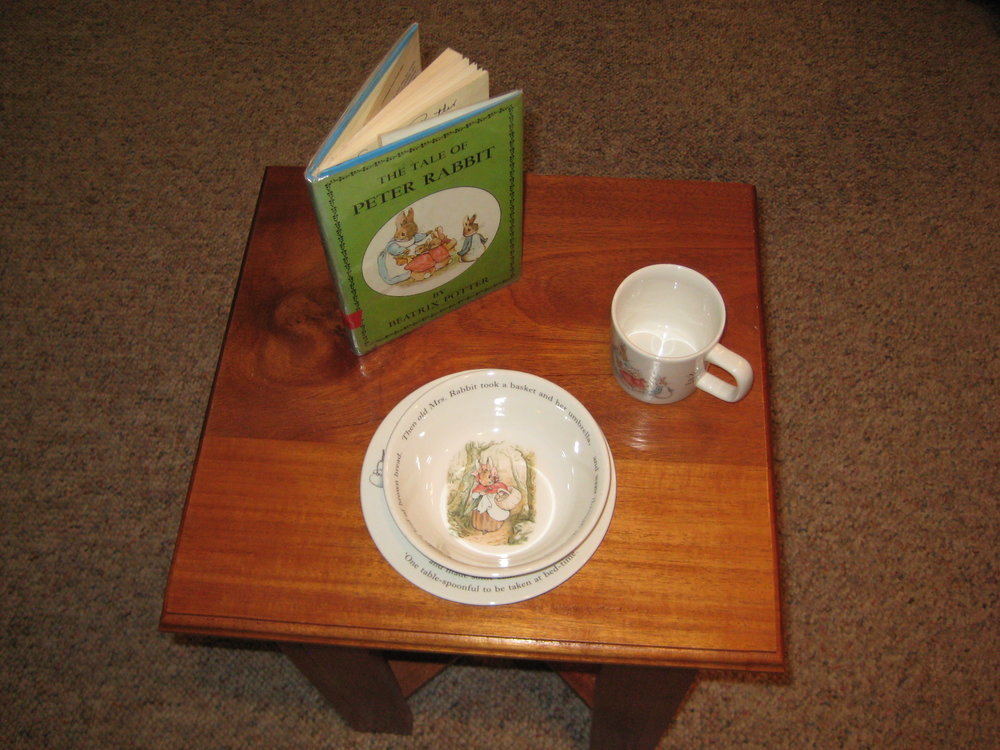
I didn't even know it was Rabbit Week, but I began to think about the ones who live in my yard. My rabbits are challenged. They won’t even stand still enough for pictures. But if I hang behind the window and look out, I can watch them stretch up on their hind legs to nibble the leaves off my Black-eyed Susans. I’m pretty sure they are the culprits for missing strawberries and the few other garden treats I’ve coaxed into growing, only to have them disappear just as they got ripe enough to
While I share Robert Lawson’s fascination with the critters and allow them the run of my garden, my rabbits have not become sufficiently 
Up from the Ashes
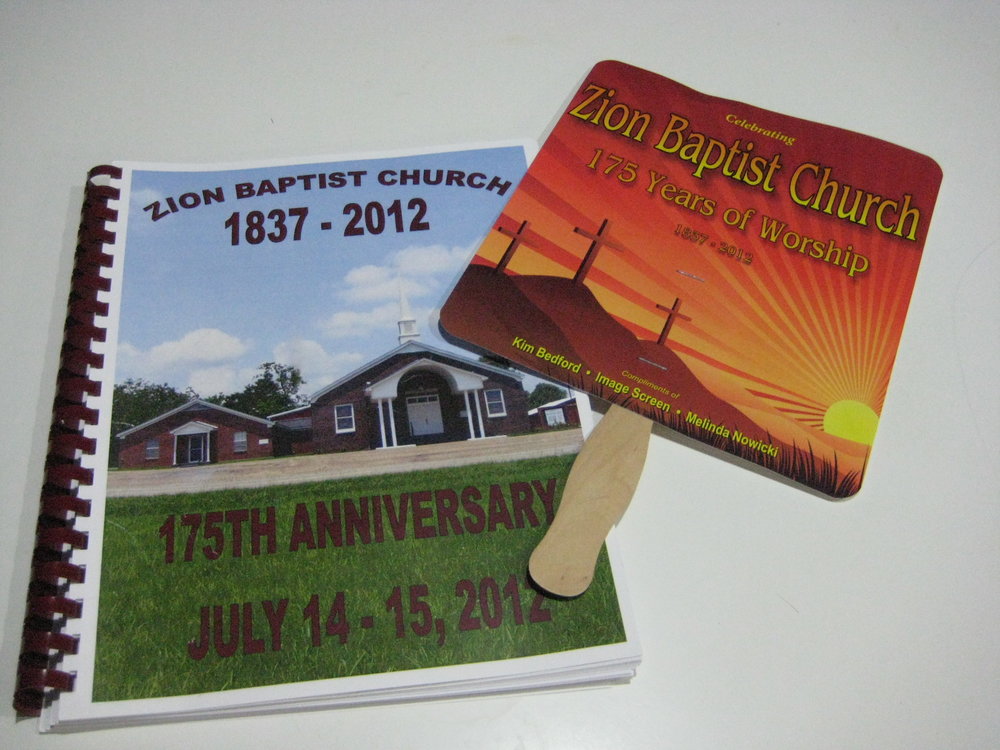
Part of the advance preparation by the anniversary committee included a call out for written memories to be included in an anniversary book. My sisters graciously allowed me to write the one from our family. I marked the date , July 14-15, on my calendar and began a waiting-for-Christmas type countdown, turning down several events that would have interfered. My excitement was tempered only slightly by recollection of Thomas Wolfe’s premise, “You can’t go home again.” Could that really be true?
My countdown had reached ten on July 4 when we got an email from our niece, “I saw on the news that Zion Church sustained fire damages this afternoon.” Thanks to Internet searching, we quickly learned that lightning had struck the sanctuary and destroyed the building before fire fighters from several communities could put it out. Other buildings had been saved.
Word came on the heels of that news that the celebration would be held as planned. They would use the remaining fellowship hall and a rented tent. Funeral home type fans marking the occasion would try to make up for no air-conditioning in temperatures hovering around 100 degrees.
As people gathered this past Saturday, sadness over a lost building was overshadowed by renewed friendships and recollections of good people and good times from the past. My sister Gwyn and I joined our compatriots in conversations that typically began with childhood memories and ended with how many grandchildren we had now. The most common question I fielded was, “Now, which one of the McGee Girls are you?” and the most common comment was, “You look just like your mother.”
Strangely, the weather cooperated with temperatures that skirted 90 instead of 100, breezes that precede threatening weather, and the week-long pattern of heavy rain abating until the tent events were over each day.
The celebration ended Sunday with a typical Zion potluck spread on jam-packed long tables filled with Southern food from the past. Besides the inevitable fried chicken, I spotted ham-and-egg pie, chicken and dressing, garden vegetables, stuffed eggs, pear salad, and a table of desserts that included my favorite chocolate meringue pie.
Looking down that long table and relishing the two days of commemoration, I came to two conclusions. (1) Zion Baptist Church will rise again from the ashes. (2) Thomas Wolfe was wrong. You can go home again.
The Raven

In a college American literature class, our professor assigned us to do a paper on an American author’s work with the stipulation that each of us had to choose a different author. Her purpose was to prevent sharing in the “before” stage and enhance our sharing in the “after” stage. Since two of us selected Edgar Allan Poe, she conceded that one could do his short stories and one his poetry. I had chosen him first, so she said I could take the short stories. I startled both her and my classmate by asking if I couldn’t take the poetry instead. My classmate moved from startled to thrilled quickly. She wanted no part of writing about the poetry.
If you are a hidden picture enthusiast, you may have noticed this love continues in my recent “TMI on the Bulletin Board” blog picture. A quilting fiber artist friend, who knows me well, participated in an event honoring Edgar Allan Poe on the 200th anniversary of his birth. She and her fellow artists created post card sized pieces in his memory that were displayed and later donated to a fundraiser for the American Cancer Society. (More complete details are in her January 2009 blog on her website at http://marthaginn.blogspot.com.) I was delighted that she made a copy of her entry for me.
The Raven, via her postcard, inspires my writing by its presence, not above my chamber door, but above my computer – evermore.
Curious About George?
A whole other story lives behind the mischievous monkey and the man with the yellow hat whose adventures were told by Margret and H. A. Rey. A generous dose of the monkey’s curiosity could have one wondering about such questions as:
• What was George’s original name?
• What was the Reys’ original name, and why did they change it?
• How did George deliver the Reys (more than once) from being accused as spies?
• What animal was in the first story they wrote about and the last to be published – after their deaths?
• Why did George wind up in Hattiesburg, MS?  [An event proclaimed on t-shirts worn by some of my grandchildren and me – available from the de Grummond Children’s Literature Collection]
[An event proclaimed on t-shirts worn by some of my grandchildren and me – available from the de Grummond Children’s Literature Collection]
If you would like the answers to these questions and more, the Mississippi Museum of Art in Jackson has an exhibition “Curious George Saves the Day: The Art of Margret and H. A. Rey” running through July 21 with all the answers. (Suggested attire in the museum brochure: Jungle Chic, Yellow Hat Optional)
My two aunts, uncle, cousin, cousin’s husband, my husband and I enjoyed the Reys’ excursions with George, beautifully done by the museum, along with a nice lunch at their Palette Café last Friday – not a kid among us unless you count second childhoods or those who refuse to grow up. Now you might say you are too far away to take this in, but we met a group of six or seven George-lovers from Texas who had flown in that morning to see the exhibit and were flying back out that night. They seemed satisfied that it was worth the trip!
My cousin said parents loved the stories because they saw their children in George. I agreed with her and added that children loved the stories because they saw themselves.
Just in case you can’t get to Mississippi to take this in, you can find the answers in the Rey picture book biography, well-told by meticulous researcher Louise Borden, in The Journey that Saved Curious George.
I do hope curiosity doesn’t just belong to monkeys.
Two-Family Car

We got wind that they were trading in their yellow bug for another car. Since we needed a second car, we made an “as is” deal with their car dealer, and it never made it to the dealership lot. For three years, I drove it to chauffeur children to school, piano lessons, football practice, etc. Jo even gave me a carved wooden roadrunner during that time as a symbol of what I had become.
Then the Army gave us orders to Germany. By this time, their youngest son needed a car. In another deal, we sold it back to them with the stipulation that I could drive it until we actually left the country. He enjoyed the Beetle for several more years. As it turned out, we didn’t just all like each other, we all liked the car.
This past weekend we made a return trip to visit the Grangers and other friends in San Antonio, sharing memories of good times when our children were the age our grandchildren are now. After a delicious lunch, Jo said, “I have a present for you.” I knew from the twinkle in her eye, that something was up. I slid the sparkling ribbon off the blue box and pulled aside the tissue paper. A shining yellow model Volkswagen Beetle seemed to smile up at me.
I parked it when I got home on the seasonal display atop one of my bookcases. It looks at home with my Fourth of July display and will fit as the seasons change through Halloween, Christmas, and Easter. And I will smile as I pass, remembering good friends and a special car we shared.
The Fourth and a 70s Ranch House

Eleven years ago tomorrow, we reached the city limits on our drive into Hattiesburg and saw a phenomena that I’ve seen only once in my lifetime. With the sun behind us as we headed into a rain shower, a triple rainbow appeared against the blackness of the thundercloud.
For the first time, we were moving to a place to live that we had chosen. After parent home choices ruled the first part of our lives, the Army had determined our location. We’d bought into the cliché “Home is where the Army sends you.” Except for the two years that Allen was on assignment in Korea and Viet Nam with me left to keep the home fires burning, the Army had made excellent choices. Fort Sam Houston in San Antonio, one of the nation’s most historic and beautiful cities, was home for our children’s younger years. We followed with a wonderful three-year tour in Germany when they were in the middle grades and high school, and ended in Fort Polk/Leesville, LA – in reach for the oldest to return for visits from Baylor and a small town community for the junior high/high school years of the younger two. Each seemed right for the age our children were at the time.
An ultimate return to our home state of Mississippi had been in Al’s mind since he was drafted. The Army had placed a square peg in a square hole, and he’d had a good career. But coming back had never left his mind. He chose the state. I chose the city. With two universities providing ongoing activities, the de Grummond Children’s Literature Collection, the Faye B. Kaigler Children’s Book Festival, and the Frances Karnes Center for Gifted Education– I thought I could live in Hattiesburg!
We found a 70s ranch house with a woods out back that reminded me of the homes I knew growing up. For several weeks, we camped out to remodel and paint. Now after a day of watching the movers pack and load our stuff, doing a last sweep out of the old house, and traveling almost 300 miles, we were nearing our chosen home.
I looked at the sight ahead of me and wondered if this was an omen. Did the black cloud forebode a bad selection? Was the wonder of three rainbows a sign that we had nailed the finest choice? With my cup perpetually half-full, I quickly – and correctly – chose the latter.
Al has found an appreciative audience here for his woodworking and baking, and I spend a lot of time hanging out with book people. So, this Fourth of July we’ll celebrate both our country’s independence and a three rainbow home selection.
Mockingbird or File Folder?

Opening the folder to find a stack of scholarly articles from respected journals written in tiny print, I answered, “Of course, piece of cake!” Fortunately, I had about ten days before I met Joe to take in the research. I would have a year to get to know him.
I thought about Joe as I read Kathryn Erskine’s Mockingbird. Although the stack of file folder articles was informative, I would have gained more understanding from her book written from the viewpoint of a girl with Asperger’s Syndrome. Kathy gets into ten-year-old Caitlin’s head and heart as she excels intellectually but makes her way uneasily through the fog of social expectations. My opinion of the book is corroborated with its National Book Award win.
Not a onetime wonder, Kathy has followed up with The Absolute Value of Mike. Mike, struggling with dyscalculia himself, takes on a project of raising $40,000 to bring an adoptive child from Romania. He takes on this venture in a town of people racked with problems – grief, emotional distance, poor judgment, depression, poverty – to name a few. Gladys refers to the Donover town sign with its missing letter to put a perspective on the community, “We’re a town of misfits, not families. I mean, look at the name of our town. Do over. We can’t get it right.”
In both books, Kathy portrays real people who deal with a difficulty rather than a difficulty housed in the body of a person. Her books are for people who want to increase their heart size and understanding with a good read.
As for Joe, we had our moments. One day in the middle of class, he blurted out that I wasn’t teaching right and explained how his last year's teacher did it. (Flashing through my mind from the thick folder: does not like change, has difficulty with empathy, lacks understanding of others’ feelings.) I shared episodes of his challenging behavior with our wonderful school psychologist who worked with him in a small group. Together we saw real progress in his social interactions over the course of the year. The climax came at the end-of-school awards day when I presented Joe with a second place win for his essay that I had submitted to a county contest sponsored and juried by the Veterans of Foreign Wars.
I just wish I’d had Mockingbird to help me prepare for him instead of that boring technical file folder!
TMI on the Bulletin Board

Goading:
• The cluttered left hand corner – time sensitive items - seemingly gains two items for every one I finish and take down.
• The right hand corner – my calendar smack dab above my computer where I can’t miss it.
Remembering:
• The skating fan Anna had signed for me by my all-time favorite skater Paul Wylie
• Picture post card with a junior high Garfield yo-yoing, dressed in a beanie and t-shirt
• A cartoon with a lady whistling as she strolls through hell with her hands behind her back. One demon is saying to the other, “Relax. We’ll never get to her. She used to be a junior high teacher.”
Inspiring:
• A Snoopy poster with the quote “It’s exciting when you’ve written something that you know is good” – also from Anna
• A card with the saying, “Grandchildren are often spoiled because nobody will spank Grandma.” You may question my putting this in the inspiration category, but you’d have a hard time finding anything much more inspirational than 8 ¾ grandchildren.
Encouraging:
• Notes from writer friends, an appreciative editor, and my sisters
• Right next to the calendar – also so I never miss it – a quote that a preacher used in a sermon 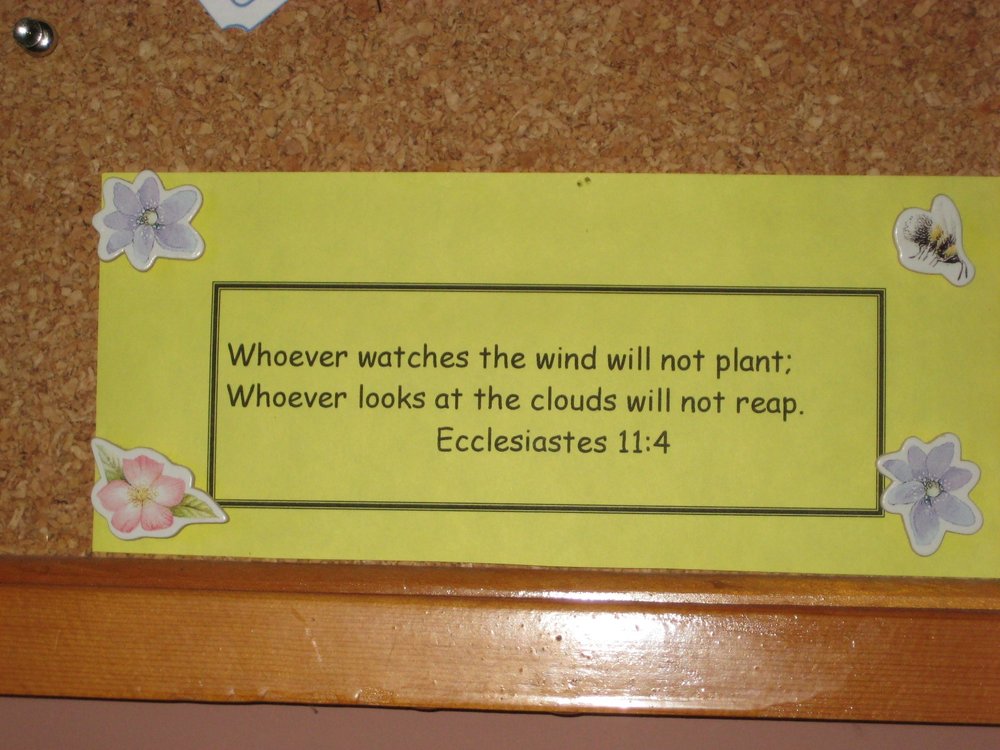
You’ll notice a preponderance of things from Anna [who is trying to make true her claim to being the favorite child] and things related to junior high. Here I must make a disclaimer by telling you the absolute truth. I loved the seven years I taught junior high. Those remarkably unique students both challenged me and made my life fun every day.
If you’re into hidden picture searches, you’ll find other teaching and writing items. I think you could draw a valid conclusion that I was a teacher with a writer inside for many years and am now a writer with a teacher inside. To paraphrase the old cliché, “You can take a teacher out of the classroom, but you can never take the classroom out of a teacher.”
If You Lived . . .
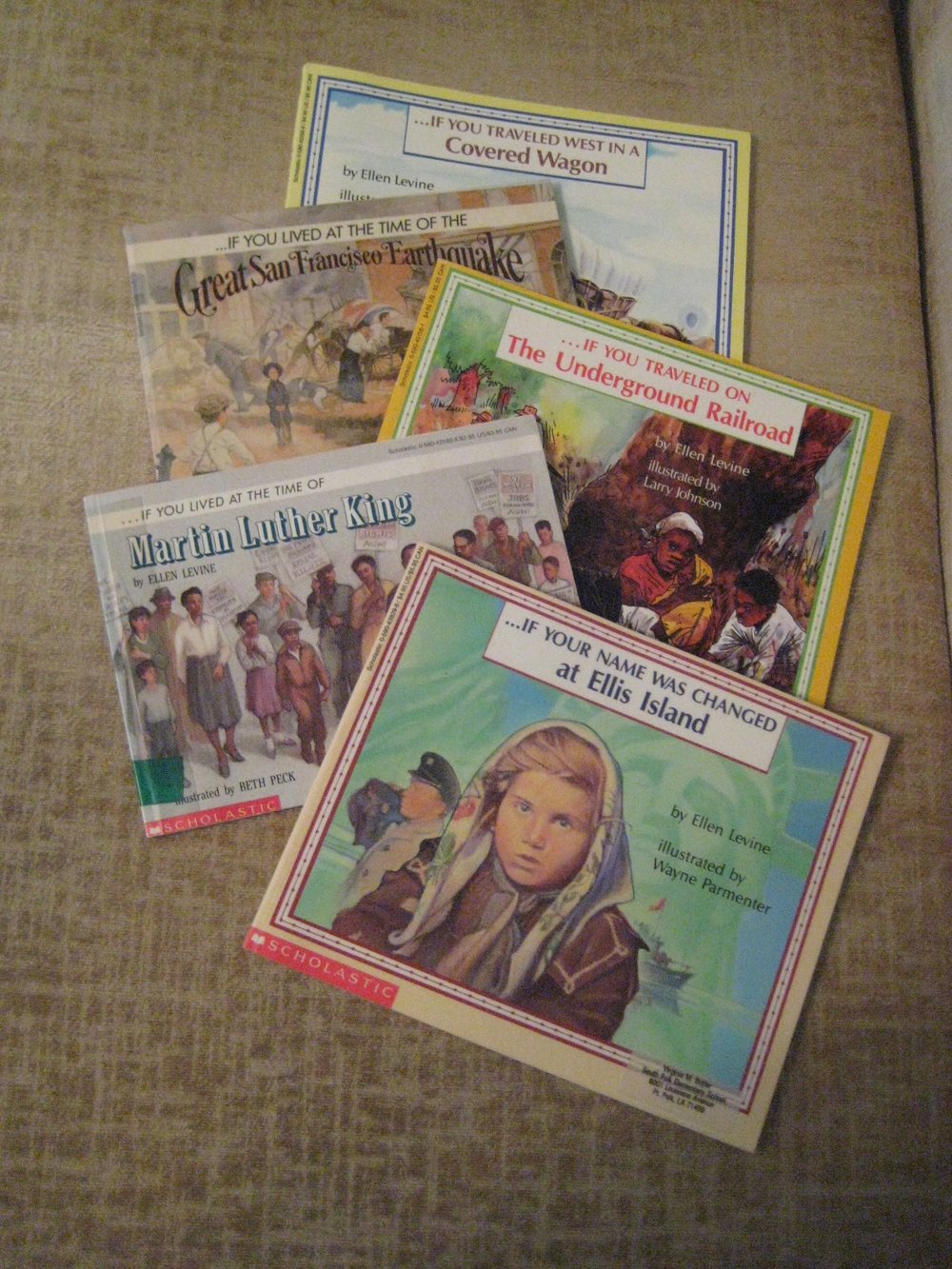
When I read of her death, I went looking in my collection and found five of those books:
• If You Traveled West on a Covered Wagon
• If You Lived at the Time of the San Francisco Earthquake
• If You Traveled on the Underground Railroad
• If You Lived at the Time of Martin Luther King
• If Your Name Was Changed at Ellis Island
She went on to write other books championing immigrants, minorities, and women. Like many people, her compassion started with a memory from childhood, which she includes in the biography on her website.
I don't remember why she (her mother) told me one day about the great jazz singer Bessie Smith. But I learned at an early age that Bessie Smith had died because a hospital she was brought to wouldn't treat a black person. And I also learned there were places that turned away Jews. One summer day we rode in a hired taxi to a country hotel in New York's Catskill mountains. We passed a billboard advertizing a hotel, not ours. Across the bottom were words I can see as if it were yesterday: No Jews, Negroes, or dogs.
I checked a couple of her other books out of the library and read them in her memory. Mei Mei, whose family moves from China to New York, in I Hate English finds English not only difficult but ordinary looking – unlike the beautiful characters in Chinese. Nancy, a clever teacher, uses story and conversation to befriend the little girl until quite by surprise Mei Mei discovers she has the wonderful choice of using both English and Chinese.
Her Henry’s Freedom Box: A True Story from the Underground Railroad has extraordinary illustrations by Kadir Nelson. With a little help from his friends, the slave Henry Brown ships himself to Philadelphia and liberty. He survives, in spite of shipping clerks who ignore “This Side Up” signs and arrives to gain his freedom and a new name – Henry “Box” Brown.
Thanks, Ellen, for the history you brought to life and for the empathy for real and imagined characters who experienced hard times you gave us without preaching to us.
Misunderstood
When did this start being fun?Daddy never understood me. He held a distinct advantage as a preacher in that he loved having an audience – the bigger, the better. Fear of public speaking had never been on his list, and he failed to comprehend why it was on mine.
I could work up a fair amount of anxiety where two or three strangers gathered and expected me to make conversation. Apprehension increased as the numbers rose. Sheer terror set in if I had to stand in front of a group and say anything. However, greater than my anxiety loomed the prospect of disappointing Daddy. My first public speaking memory came at age seven when he asked me to tell the Bible story of Daniel and his friends in front of the whole church. Daddy’s logic figured I knew the story well and was already a good storyteller so there was no problem. My logic said there were at least a hundred people out there listening. I couldn’t explain quite what there was to fear, but I knew it was something.
To be fair, this was a rural church where I knew everybody, and they had been good to their pastor’s family. The “not disappointing Daddy” option won out, and I got up and told the story. I sat down and immediately burst into tears of relief. I think that was the only time I cried, but the pattern repeated Some of the attendees even took notes!itself over the years. I’ve tried to remember at what point I figured out what Daddy knew all along – that conversations with strangers can lead to new friendships and interaction with an audience is stimulating. I know that insight was slow in coming, but it has brought a number of good memories of new friends and receptive listeners.
Last Saturday my friend Carrel Muller and I had a great time doing a presentation for the Louisiana Society of Children’s Book Writers and Illustrators on magazine writing for children and Carrel really isn't telling about a fish she caught.young adults. You can see from the pictures, we’re having fun.
It put me to wondering on this Father’s Day weekend if this could have happened if Daddy had understood me. I’ve decided his lack of understanding is one of his best gifts ever.
To Buy or Not to Buy?
 Picking blueberries, like almost everything else, puts me in mind of a book. On weekly trips to the library when youngest son Mark was about four, Blueberries for Sal was either going or coming. One week he checked it out. The next week, he took it back. Other books joined the stack, but back and forth, there was always Blueberries for Sal.
Picking blueberries, like almost everything else, puts me in mind of a book. On weekly trips to the library when youngest son Mark was about four, Blueberries for Sal was either going or coming. One week he checked it out. The next week, he took it back. Other books joined the stack, but back and forth, there was always Blueberries for Sal.
Now, you might ask why I didn’t buy him a copy if he loved it that much. Truth is, I did think about it. I bought him books, after all, but I decided we might lose something important – like his love of trips to the library.
Fast forward with Mark a few years to the summer between second and third grade. Now it’s the Hardy boys series. Check one out the first week. Take it back the second and check out another. He may have been stuck in just one series, but at least it was a different book each week. He’d finished all the ones at the Fort Sam Houston’s post library by time for school to start and then looked for more in the school library.
Another jump in time and my now junior high son stayed up all night to finish Carry On, Mr. Bowditch. Intrigued when I told him the author had been challenged to see if she could write a book about a mathematician that was actually interesting, this math-lover decided to check it out. [Both Mark and the Newbery Committee thought she did.]
If I had it to do over, I would still buy some books but leave Blueberries for Sal and the Hardy Boys at the library. I had affirmation of my decision this past week when poet Rebecca Kai Dotlich posted this quote from Ray Bradbury on Facebook: "Libraries raised me. I don't believe in colleges and universities. I 
I’m glad Mark also got to go to college, but he had a lot of fun and education purchased with a free library card. You’ve gotta’ love that library!
Prairie Songs
 I first heard about Pam Conrad at a Highlights Foundation weeklong workshop for children’s writers in Chautauqua, New York in 1998. People still grieved her death of breast cancer two years before that had come much too soon when she was only 48. Many remembered her support of the workshops and of beginning writers. The Highlights Foundation honored her by naming one of its endowment funds for her. The endowment interest supplies scholarship money for writers to attend their very excellent workshops.
I first heard about Pam Conrad at a Highlights Foundation weeklong workshop for children’s writers in Chautauqua, New York in 1998. People still grieved her death of breast cancer two years before that had come much too soon when she was only 48. Many remembered her support of the workshops and of beginning writers. The Highlights Foundation honored her by naming one of its endowment funds for her. The endowment interest supplies scholarship money for writers to attend their very excellent workshops.
Her name came up again recently in a recommendation from Kimberly Willis Holt for Pam’s book Prairie Songs. I decided it was time for me to check “read Pam Conrad” off my To Read List. Besides the gripping story, I found much to learn from her writing.
Her beginning will go in my collection of good first lines: “The prairie was like a giant plate, stretching all the way to the sky at the edges. And we were like two tiny peas left over from dinner, Lester and me.”
I empathized with her protagonist Louisa in her effort to give Lester the silent treatment since that revenge method is lost to me for the same reason: “But it was too hard, and too hot to keep all those words inside with that sun beating down on me like hard rain.”
She mastered the art of depositing the reader in her setting without giving a long description: “I watched Mrs. Berryman stand and walk to the window. I knew what she would see, gazing out that way, through the deep window. Nothing. Clear nothing for miles and miles.”
And look at the information and emotion packed into one incomplete sentence: “Our soddy with the flour-sack curtains, the flowers on the roof, and the two magazines under my cot.”
The powerful book is not for those who need cheering up since the reality of a hard life that only gets more and more difficult draws her readers in until the sadness becomes theirs. It is for those who admire words into sentences into paragraphs that transport the reader into another life. It is for those who appreciate an ending that satisfies but carries little promise of “happily ever after.”
I finished the book with longing for Louisa to have a better life, sadness that Pam Conrad had such a short time to add to the canon of children’s literature, and gratitude to Kimberly for reminding me that I needed to read Pam’s work.
Criticism Caution for Charlotte

The book is called a novel, but it’s based on extensive research and Charlotte’s own meticulously kept diary. There are only a few places where it appeared obvious to me that the author created fiction to fill in more than scenery and dialogue. I recommend it to those who love the writings of the Brontes or for those just looking for a good story from their era.
Included in the back matter is an exchange with the poet Robert Southey. Charlotte had sent the revered English poet laureate some poems for critiques. His reply, dated 12 March 1837, gives several pieces of ambivalent advice:
• Literature cannot be the business of a woman’s life, and it ought not to be. The more she is engaged in her proper duties, the less leisure she will have for it, even as an accomplishment and a recreation.
• Write poetry for its own sake. . .and not with a view to celebrity; the less you aim at that the more likely you will be to deserve and finally to obtain it.
I would say the second advice is sound, but the first raises a question. Aside from a few English literature majors, who knows about Robert Southey? The parody of his poem by Lewis Carroll “You Are Old, Father William” is more famous [and much more fun] than Mr. Southey’s original.
Charlotte appears to take his advice to heart and works up mandatory feelings of guilt. In her response to his letter she begins by admitting she has wasted quires of paper in her useless writing and moves to a new rationalization that the pleasure of writing can be hers, but only after she has finished her real woman’s work. Her answer, dated 16 March 1837, includes:
• I have endeavored not only attentively to observe all the duties a woman ought to fulfill, but to feel interested in them. I don’t always succeed, for sometimes when I am teaching or sewing I would rather be reading or writing. . .
Apparently all three sisters – Charlotte, Emily, and Anne – followed the advice and wrote in leftover time.
In retrospect almost 200 years later, students still read Jane Eyre and Wuthering Heights; movies abound for both of them – the latest Jane Eyre doing well at its box office release in 2011; and this teacher and her students enjoyed both in their read-aloud time. Even Agnes Grey is still readily available. All three are great books for shared reading and discussion. There is no one alive with any remembrance of how well Charlotte did her “woman’s work.”
There will always be the Southeys, quick to give advice of questionable quality. Borrowing an idea from a favorite principal, I would suggest when one of those advice-givers tries to tell you what to do, you can smile sweetly and say, “You could be right.” Then finish the sentence in your head, “. . . and children may build snow forts in July in South Mississippi.”





